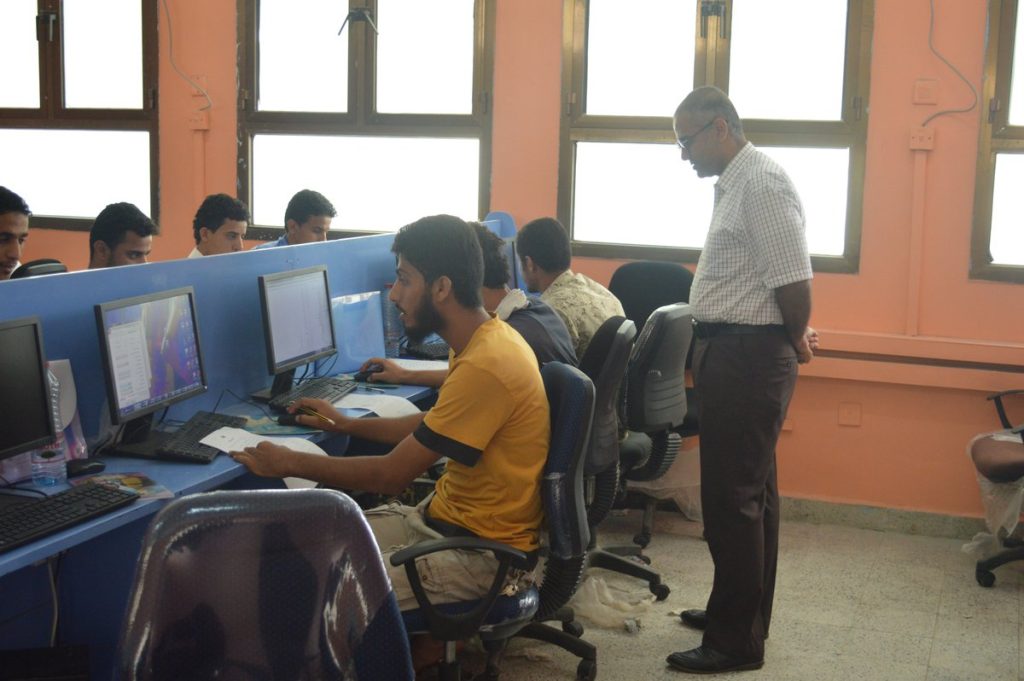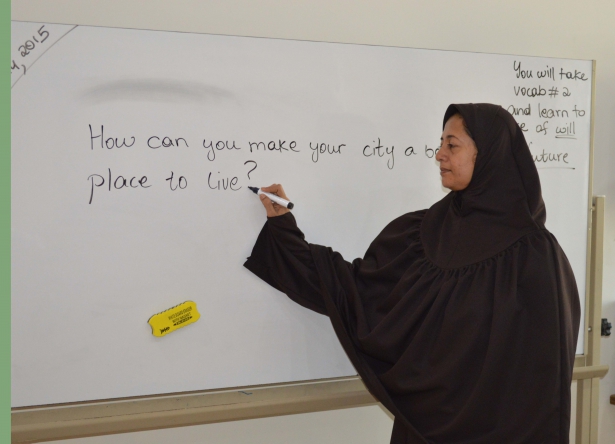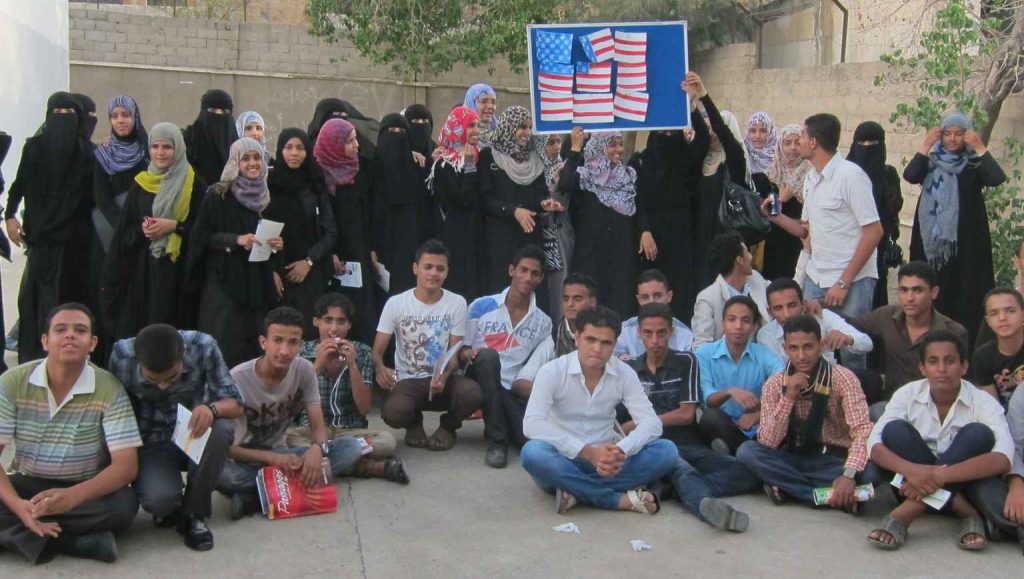AMIDEAST attracts hundreds of young people to the second edition of the Nahdet Shabab program.
AMIDEAST covered tuition fees for 14 students in the United States during the war in Yemen in 2015.
The number of English language scholarships for low-income students has dwindled, and others have withdrawn due to the war.
AMIDEAST maintains examination and counseling services in Sana'a and Aden
The American Institute of Education in Yemen announced the opening of applications for the "Nahdat Shabab" program for residents of the cities of Mukalla and Aden. Applications will remain open until September 6.
The second edition of the program, funded by the US State Department, targets young people between the ages of 18 and 30, providing them with training in various professional and vocational fields to strengthen the Yemeni economy and combat unemployment, according to the institute.
In the first edition, 600 young Yemeni men and women were trained in various practical fields, in partnership with 30 entities from the public and private sectors.

These programs have been part of AMIDEAST's projects in Yemen since its inception. AMIDEAST began its activities in Yemen in 1952 with scholarships to the United States.
AMIDEAST provides its services in four Yemeni governorates (Sana'a, Aden, Hadramout, and Taiz). Its services include: cultural exchange programs through scholarships (Diana Kamal, Fulbright, and Kennedy Lugar), the English Proficiency Test (TOEFL), studying in the United States of America, strengthening government sectors, and professional development for segments of society through many programs such as (the English Language Training Fellowship Program - the Professional Certificate in English Language Teaching (PCELT) - professional development seminars - the English Language Teacher Qualification Program from Rural Areas), and the Access Scholarship Program for learning English.

AMIDEAST played a significant role during the 2015 conflict in Yemen. Through donations, it was able to cover the financial costs of 14 Yemeni students who were at risk of dropping out of school due to the inability of their families or sponsors in Yemen to continue their studies in the United States.
AMIDEAST also ensured that its examination and counseling services continued for those wishing to study in the United States, despite Yemen's difficult circumstances.
The institute's teachers continued to teach their students despite the war conditions.


Mona Al-Mahdar, a student at AMIDEAST's Aden branch who graduated a year ago, tells us about the educational conditions the institute faced during the 2015 Yemen war: "Since the war began in March 2015, we stopped studying at the institute for six months, which worried us greatly, especially since the US embassy decided to do so. This meant that we were about to lose six months of our two-year scholarship, just like the previous batch. However, a group of students from our batch met with officials from the US embassy and requested an extension of the scholarship. Thank God, we completed our studies, and everything returned to normal. The war did not affect teaching at AMIDEAST at all, except for the course fees for students who pay per course."
In the same context, Al-Mahdar said: “As for talking about payment, it is true that the war did not affect teaching at the institute, but the student study rate has decreased for several reasons. One of those reasons is the high prices of courses due to the decline in the value of the Yemeni currency and the rise in the value of the US dollar. The other reason for the decrease in the number of students at the institute is the decrease in scholarships for students with limited income, which led to the withdrawal of a large number of students, especially in light of the war that affected every home (financially and morally). The majority of students were not able to pay the huge sums to study only a few courses at the institute. Thus, I can summarize my answer by saying that studying did not affect me personally, but it affected other students at the institute.”
As for her experience at AMIDEAST, Al-Mahdar confirmed that she gained a lot. She learned the language and reached an advanced level in it, and she gained kind friends, as well as a love of culture and civilization. In addition, AMIDEAST instilled in her high ambitions and goals, which she would not have been able to achieve today without it, she said.
In addition to what Mona Al-Mahdar said, her colleague Hanin Abdullah confirmed this, adding: “However, with the rise in the value of the dollar, the institute tried to calculate the exchange rate of the US dollar against the Yemeni riyal at a lower rate than the market rate to enable students to complete their studies. All Access students wish they had the opportunity to complete their studies at the institute because of the strength of the teaching and the wonderful time we spent there.”
The latter, "Muniya Al-Aqel," complements AMIDEAST's efforts amid the worsening situation, saying, "AMIDEAST is adapting to the situation and is not being harmed, because they are developing future plans, a system, laws, rules, and secondary plans."
Quoting the official AMIDEAST website in a report titled "Responding to the Yemen Crisis," AMIDEAST teachers emphasized the importance of education at a time when Yemeni society is turning away from it due to the ongoing war. They affirmed their commitment to continuing their education through AMIDEAST and partner educational institutions, and to not stopping during the current crisis.

AMIDEAST, short for America-Mideast Educational and Training Services, is a prominent international organization active in international activities in the Middle East and North Africa. Founded in 1951, AMIDEAST is present in 11 countries around the world and is headquartered in Washington, D.C.
